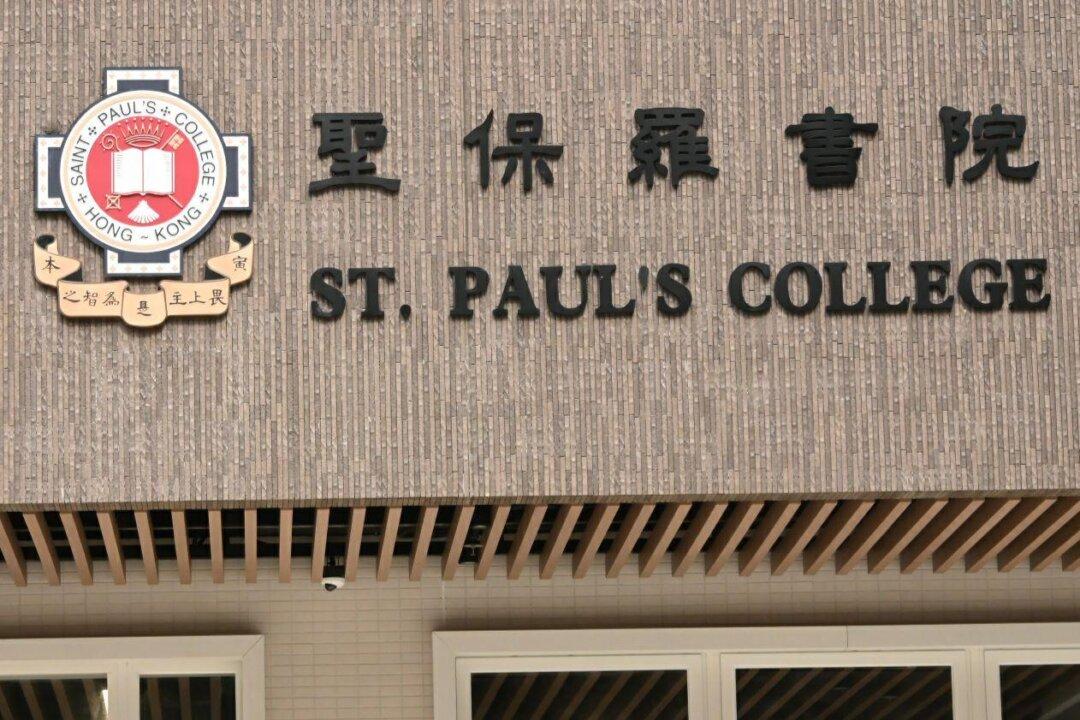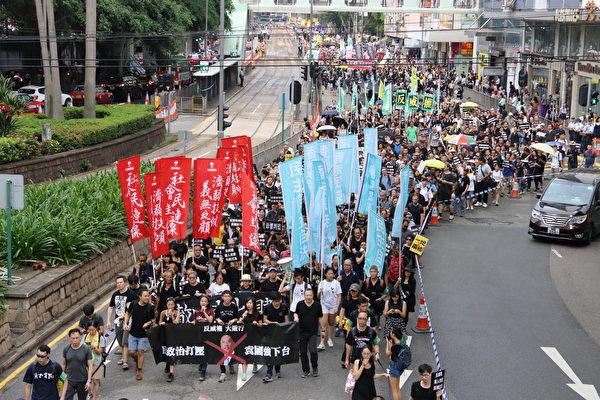HONG KONG—For the past two years, the Food and Environmental Hygiene Department (FEHD) in Hong Kong has been interfering with Falun Gong information booths and confiscating banners and materials. Their actions were recently ruled unconstitutional and excessively forceful.
Since the Chinese Communist Party began its brutal persecution of Falun Gong in 1999, practitioners of the spiritual discipline have been explaining the facts about the persecution to citizens and mainland Chinese tourists in Hong Kong. They use information booths to raise awareness of the situation and counter the Party’s propaganda.
Beginning in April 2013, the FEHD, under the administration of Chief Executive Leung Chun-ying, has employed a task force to carry out daily inspections of Falun Gong booths and forcibly confiscate all their banners and panels.
Although Falun Gong practitioners have recently made progress with their lawsuits, the FEHD has ignored the court’s decision and continues to interfere.
Ms. Poon’s Case
50-year-old Falun Gong practitioner Ms. Poon arrived alone at the Chief Executive’s Office in Central on May 2, 2013 to raise awareness of the persecution by holding banners. While she was meditating, around 10 FEHD members arrived.
An FEHD member bagged one of the banners, and Ms. Poon hurriedly took the other banners in her arms. Several members tried to take them away from her, but were unsuccessful and called the police.




